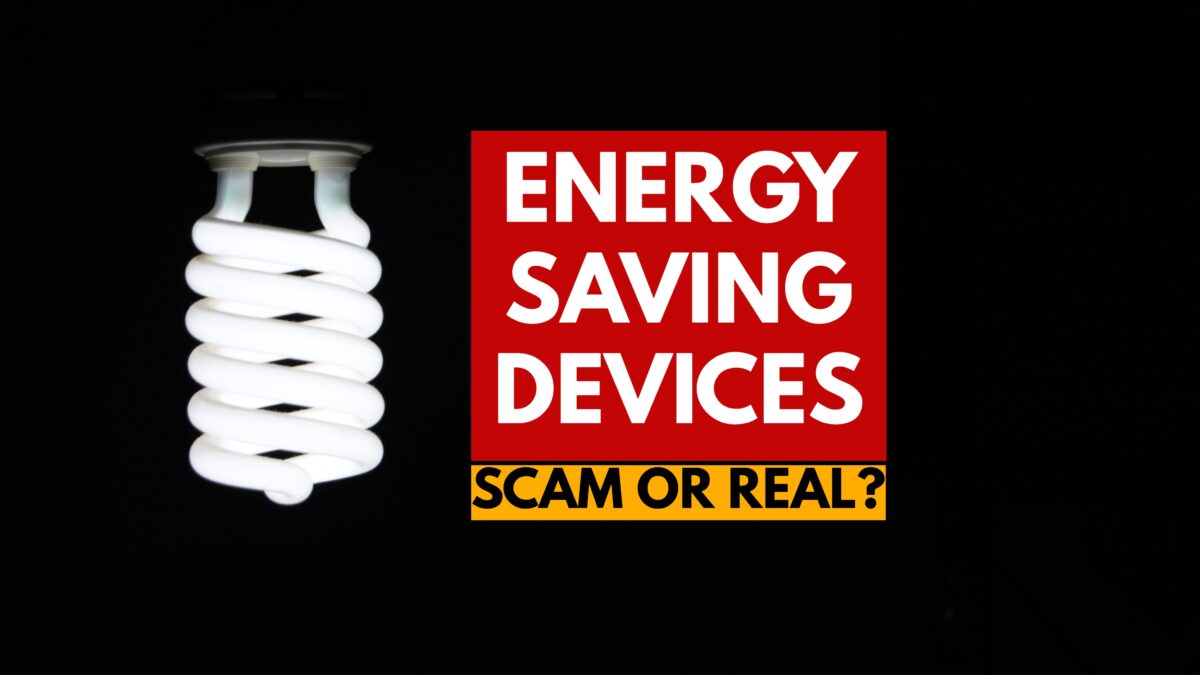Energy-saving devices are products that are designed to help households and businesses reduce their energy consumption and save money on their energy bills. However, not all energy-saving devices are legitimate, and there are many scams out there that claim to offer significant energy savings but do not actually deliver on their promises. In this article, we’ll explore some common energy-saving device scams and what consumers can do to protect themselves.
Types of energy-saving scams
One common type of energy-saving device scam involves companies selling devices that claim to reduce energy consumption by a significant amount. These devices may be marketed as “miracle” products that can save consumers hundreds or even thousands of dollars on their energy bills. However, many of these devices are not backed by scientific evidence and do not actually deliver the energy savings they claim to offer.
Some companies may sell devices that claim to reduce the energy used by appliances, such as refrigerators or air conditioners.
These devices may be plugged into the appliance’s outlet and are supposed to reduce the appliance’s energy consumption by altering the electrical current. However, these devices are often not effective and do not deliver the energy savings they claim to offer.
GET FREE SCAM ALERTS VIA EMAIL AS SOON AS THEY ARE EXPOSED
NEVER GET SCAMMED AGAIN!
Scammers never stop devising schemes to separate us from our hard-earned money. So, make sure to sign up for our weekly email scam alerts. TotalScam!™ Alert will notify you as soon new scams are discovered.
GET FREE SCAM ALERTS VIA EMAIL AS SOON AS THEY ARE EXPOSED
SUCCESS! YOU'VE SUBSCRIBED!
Scammers change tactics all the time in order to separate us from our hard earned money. Leave your information below and TotalScam!™ Alert will notify you as soon new scams are discovered.
To protect yourself from energy-saving device scams, it’s important to be aware of the red flags and take precautions.
Tips to avoid energy-saving device scams
Research the product
Before you invest in an energy-saving device, do your research and make sure the product is legitimate. Look for independent reviews and check with government agencies or consumer organizations to see if there have been any complaints filed against the company.
Look for third-party certifications
Research third-party certifications, such as Energy Star or the Solar Rating & Certification Corporation (SRCC), that indicate the product meets certain energy efficiency standards.
Don’t believe unrealistic claims
Be wary of unrealistic claims, such as products that claim to save an excessive amount of energy or generate significant amounts of renewable energy. These claims are often too good to be true.
Our investigations into Common Scams of 2024
By following these tips and being vigilant, you can protect yourself from energy-saving device scams and ensure you are investing in legitimate products that will actually help you save energy and money. Remember, if something seems too good to be true, it probably is. If you are considering investing in an energy-saving device, do your research and be sure to verify the product’s effectiveness before making a purchase.
Expose a Scam
The following phone numbers, websites, and emails have been reported to us by the consumer. If you feel this information is incorrect, you may submit a request for removal or correction by contacting us using this form.
Submit phone numbers, websites, or email addresses associated with a scam. Your submission will be published as soon as it gets reviewed by one of our staff members.
How useful was this report?
Average rating 0 / 5. Vote count: 0
No votes so far! Be the first to rate this post.
FAQ
Fraudulent websites can be easily spotted by looking out for these 5 red flags. Learn about them by visiting the following this link: How to tell if the website is a scam in 5 steps.
Yes. If scammers are in possession of your personal information, they can use that to steal your identity. For more on this subject, please read: How scams lead to identity theft.
There are various ways in which scammers gain access to your personal information. One such way is by purchasing consumer data on the darknet. When a website is hacked, which happens quite often, hackers steal databases containing personal information and sell that to the highest bidder. This information is then used to steal identities, ruining lives in the process. For more on this subject, follow this link: How scams lead to identity theft.
It depends on the method of payment. For more on this subject, please read: How to recover your money if you’ve been scammed.
Most scam artists reside outside of the US and use threats to exact more money from their victims. Nevertheless, all threats should be taken seriously, especially if scammers have your name and address.
Attention: Consumers who have been contacted by scammers could have had their personal information breached. TotalScam!™ highly recommends that consumers whose information has been breached obtain an identity theft protection service immediately.
There are several companies that offer identity theft protection in the US. One of the most inexpensive options we were able to find is the protection offered by LifeLock. You can start your protection here.
Disclaimer: The information and opinions contained on this site are not endorsed by LifeLock. TotalScam!™ receives compensation from LifeLock. This helps support our scam prevention efforts.
